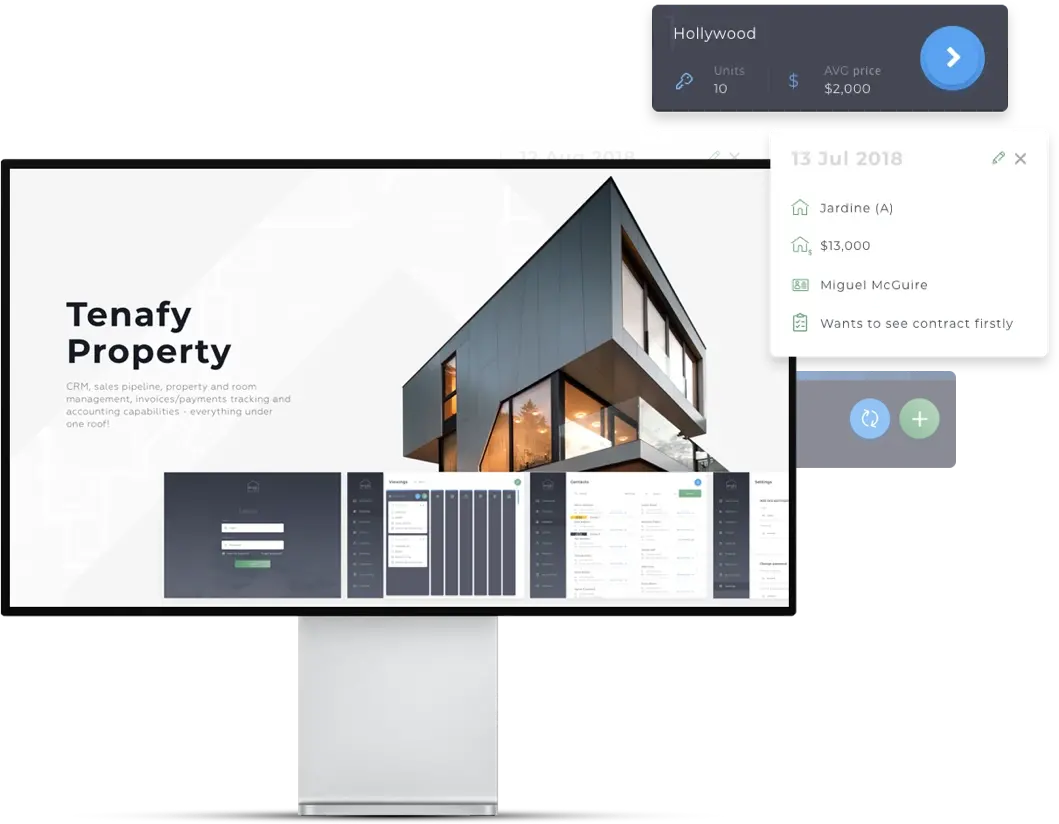The entire history of technological progress boils down to the never-flagging attempts of people to enable machines to do hard work for them. With the advent of Industry 4.0, we have realized that not only physical toil can be delegated to robots. Artificial intelligence (AI) solutions that it has ushered in are making it clear that the lion’s share of mental jobs which only humans had the savvy to handle (as it was widely believed) can be entrusted to computers. They solve complicated tasks in a faster, more accurate, and error-free way that we can never hope to achieve.
Sensing the enormous potential of this technology, astute entrepreneurs invest heavily in AI development – a trend that is only going to gather momentum in the foreseeable future. Indeed, the global market in the sector has more than doubled during the last two years and is expected to approach a breathtaking $2 billion by 2030.
As the world of business is taking the surge in AI employment in its stride, this know-how conquers ever-new industries, including agriculture, manufacturing, entertainment, logistics, and more. As for real estate, artificial intelligence finds here a whole range of applications, making it more efficient and user-friendly.
Leveraging AI for Real Estate Use Cases
Like any other realm in the age of across-the-board digitalization, real estate keeps abreast of the state-of-the-art proptech solutions honed to take the pipeline routine and customer service in the niche to a new level. Real estate companies onboard various types of software in the domain – from property management systems to custom real estate CRMs. However, most business owners and top executives realize that if they want to get a significant competitive edge and oblige their clientele, they should make AI real estate solutions their chief priority as soon as possible.
What do the stakeholders in the industry get by using AI in their workflow?
Enhanced lead generation
Inadequate agility in obtaining high-quality leads is an endemic problem for the real estate sector. Agents and realtors here spend hours on discussions with prospective clients and have to rely largely on local expertise to guide people through all the steps of the conversion funnel.
Leveraging machine learning mechanisms that process huge amounts of often unstructured data, they can promptly get insights into customer behavior and pinpoint the target audience to work closely with. Natural-language processing as one more AI-driven technology can be highly instrumental in collecting actionable intelligence from such enormous datasets and narrowing down the lead search to focus their marketing efforts on this segment.
Learn the steps to launch a successful real estate crowdfunding platform
Introduction of virtual tours
For the majority of people, making a buying choice in real estate is a serious decision that involves considerable capital spending. It is impossible without seeing the piece of property with your own eyes and weighing all pros and cons of available options. Since, as often as not, houses and apartments for sale are located in far-sundered places (or even abroad across the globe), visiting each of them takes much time and travel expenses. And this is a chance for AI and real estate agents to combine their efforts.
Online 3D tours of property with panorama, zoom-in functionality, and spoken notes become a cost-effective and time-saving alternative to physical presence on the spot, which can greatly promote and accelerate the property selection process.
Streamlined home finding
Another way of simplifying the home hunt is to leverage AI-powered search algorithms guided by the criteria the prospective property owners set for their future lodgings. First, they enter the number of bathrooms and bedrooms, floor plan, square footage, price range, and other characteristics they prioritize in the house they want to buy. Then, after analyzing their previous searches, the specialized AI solution recommends available properties for the house hunter to consider.
Facilitated mortgage calculation, property evaluation, and rental rates
Calculations of all types related to the property are as complicated as a home search because the process requires the consideration of multiple factors. Realtors and brokers have to take into account the age of the building, park, and school proximity, infrastructural facilities in the area, local crime rate and natural disaster likelihood, community friendliness, and even the amount of light a house receives or sound disturbance it is subject to. Moreover, they should be able to calculate income, check its sources, and try to predict home buying trends and investor market in the locality to make no mistakes in mortgage rates or buy property at the optimal price and sell at a sound profit.
Given the significant list of variables to pay attention to, their volatility, and multiple resources (from municipal and police records to school district estimates) to sift through, property evaluation and mortgage calculation become a tough row to hoe. Real estate AI-reliant software can help in this endeavor, gathering all kinds of available information and generating value figures for a specific region, city, or neighborhood.
Tenafy Case Study: Streamlining Property Management Digitally

Efficient space utilization
This is relevant for businesses that find office space planning quite challenging. When the company grows, overhauls the structure of its departments, moves into different premises, acquires new equipment, or undergoes any other changes, the management has to take thought for using the office space well.
Internet of Things solutions reinforced with the power of AI is a great crutch in this task. To accomplish it, IoT sensors gather data on how the office space is utilized, and AI algorithms swiftly detect cases of inefficient space usage.
Aid in property development and management
This is not only a use case of AI in real estate but in the construction industry as well, where software products reign supreme today. Building companies can benefit greatly by employing AI algorithms to suggest optimal building sites following certain parameters, like available and future infrastructure, local industry trends, city zoning, land prices, etc.
Besides, property owners and rental firms can manage their estates better if they rely on 24/7 chatbots to respond to queries or schedule property tours and leverage AI mechanisms to automate manual tasks. In this way, they can boost document handling and minimize paperwork essentially by letting the software process rental applications, create and edit lease forms, prepare disclosure statements, issue requests for proposals, etc. Thus, they will reduce the number of personnel involved in property management as well as minimize errors and inconsistencies in the red tape routine.
Prevention of budget overrun
When it goes to building construction, budget overrun is quite symptomatic in this field. And the larger the project is, the more likely it is to exceed the initial capital allocations, which sometimes may run up to 80% above the expected cost.
To minimize such adverse developments, special cameras and IoT sensors can capture the images of building sites, which are then fed into AI algorithms and neural networks to analyze the data. These enable managers to correctly estimate the overall budget by gauging the project size, its duration, the number of materials and equipment they will need, and the roster and competence of the working team to commit.
Simplified transactions
Smooth and hassle-free transactions are an important element of satisfactory customer experience in all business domains, and real estate is no exception. AI and ML-enriched CRMs ensure this process by providing auto-filling data fields, automating compliance checks, generating in-depth reports, performing analytics, personalizing documentation, and improving transaction closing in many other ways.
Let’s solve your business challenges with custom software solutions
Improved headhunt
It is the personnel in the real estate industry that oftentimes makes the difference. Without human touch and creative approaches, selling property is doomed to defeat. Finding such employees is a no-joke task for any recruiter, and AI solutions can assist them in this ordeal. Although the hiring process is mostly the responsibility of HR specialists who hold interviews with applicants, computers can lend a helping hand in tackling some standard tasks like screening resumes. Besides, the involvement of AI tools eliminates biases in the hiring procedure and lets companies onboard the most qualified experts in the field.
Top-notch business analyses and forecasting
In a sector where the stakes are extremely high, the ability to anticipate market trends and fluctuations are vital. AI solutions excel in a thorough analysis of historical and current data and yielding insights and forecasts of future sale and rent prices as well as mapping out investment opportunities. When properly applied, these tools can maximize ROI and mitigate risks the industry is subject to.
Advanced content marketing
In an age when most people lead not only physical but also virtual life, disregarding social media as a marketing channel is a felony. AI solutions can help administer social media campaigns and create real estate ads for different social networks and various consumer strata.
Drawing a Bottomline
In real estate, like in other digitally-driven industries of the 21st century, companies rely heavily on cutting-edge software. This is the only course for them to take if they want to not just precariously keep their nose above the water but flourish and expand in the contemporary highly competitive business environment. Artificial intelligence is one of the top technologies that can step up their efficiency and productivity, improve and facilitate internal workflow, and augment customer experience, thus bringing considerable value to all stakeholders in the sector.
Being advanced and sophisticated IT solutions, AI-fueled real estate software products can be developed and implemented only by high-profile experts in the niche. Seasoned mavens of Requestum possess the necessary skills, experience, and tech stack to deliver within time and budget any AI-powered real estate solution that will impress you with smooth performance and superb functionality. Contact us to commission a real estate software product of your dream.

Our team is dedicated to delivering high-quality services and achieving results that exceed clients' expectations. Let’s discuss how we can help your business succeed.


SHARE: